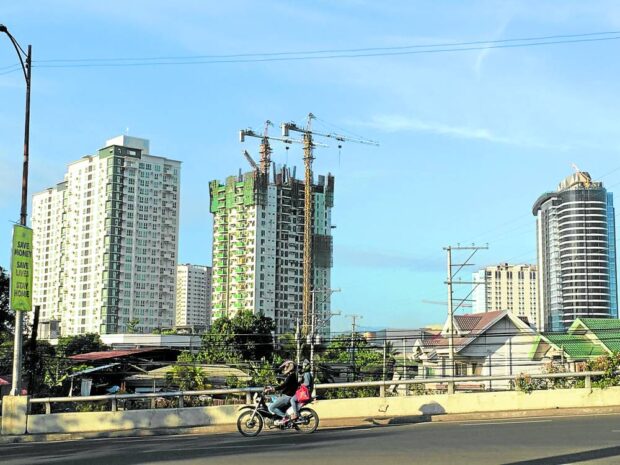
CHANGE FOR THE GOOD The changing skyline of Davao City, captured in this photo taken in February 2021, indicates its continued rise as the economic center of Mindanao. It is now at the center of the proposed 20-year master plan that will transform the city and its neighboring Metro Davao towns and cities into a livable metropolis. —GERMELINA LACORTE
DAVAO CITY, Davao del Sur, Philippines — Economic planners are targeting a livable, smart, and resilient Metropolitan Davao in the 20-year comprehensive and sustainable master plan to be formulated here with the assistance of the Japanese International Cooperation Agency (Jica).
On Friday, the Philippines and Japan signed the technical cooperation project (TCP) for the drafting of the 20-year master plan that would rationalize the development of Metro Davao’s component cities and towns and will connect them to the growth centers.
National Economic Development Authority (Neda) Secretary Arsenio Balisacan said the formulation of the Jica-funded master plan would be crucial as the document would serve as an economic blueprint for the development of Metropolitan Davao, an area that includes the urban corridor stretching from Digos City in Davao del Sur to Tagum City in Davao del Norte.
It will also connect the growth centers that include Mati City in Davao Oriental, Maco in Davao de Oro, and Malita in Davao Occidental.
The master plan, Balisacan added, would transform Metro Davao “into a livable area with lots of opportunities for people of Davao, Mindanao and especially the young generation.”
“Without a master plan, without clear study, we cannot envisage a good impact after the completion of the projects. I believe that the masterplan for Metro Davao is a very important milestone,” said Jica Philippines Chief Representative Takema Sakamoto, who signed the agreement with Balisacan, representing the Philippines, in a ceremony witnessed by Japan Ambassador to the Philippines Kazuhiko Koshikawa and Neda Undersecretary Abad Santos.
The study will take 18 months to complete and is targeted to start in January next year.
All on board
Maria Lourdes Lim, Neda director for Davao Region, said the Regional Development Council endorsed TCP to the Neda central office last year, which was eventually coursed through the Department of Foreign Affairs and the government of Japan.
According to Lim, the local governments of the cities and towns of Metro Davao had agreed to work together in areas of development planning, transport, traffic, waste disposal, flood control and sewerage management, land use planning, urban protection, pollution control and public safety, which include the formulation and implementation of programs that would enhance their preparedness and resiliency.
Lim said the Metro Davao local government units “have been on board in this process from day one and we hope that they will still fully engage as we implement this TCP.”
Arthur Milan, the Davao RDC chair, said the master plan will inform development planners and policy makers on their moves to develop Metro Davao and to identify areas where there still needs to be addressed.
“Without a plan we would not know where we are going. Master planning comes in so we can have a holistic approach to development,” he said.

